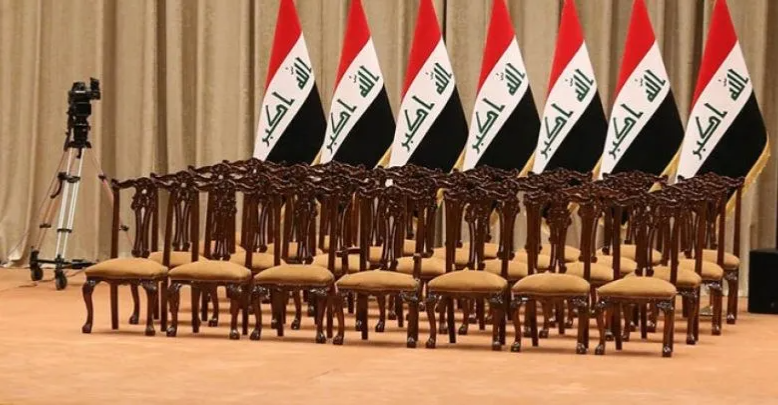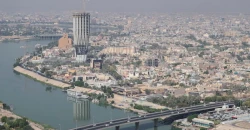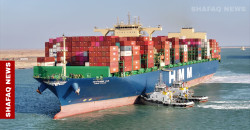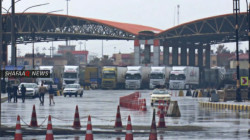Inevitable changes ahead: what awaits Iraq after January 20?

Shafaq News/ As regional transformations continue to expand, Iraq appears to be directly affected by some of these changes. Many observers expect a wave of shifts in Iraq following the inauguration of US President Donald Trump on January 20.
"Changes are inevitable, and Iraq will be part of the new Middle East." This pivotal statement is echoed by many analysts predicting the near future.
In an interview with Shafaq News Agency, Ihsan Al-Shammari, head of the Political Thinking Center, believes that Trump’s strategy toward Iraq will differ from his approach during his first term. "It is not possible to discuss a return to maximum pressure and direct intervention on Iraqi soil at this point."
Al-Shammari suggests that the Trump administration’s approach to Iraq will unfold on several fronts: “First, targeting Iran's allies and diminishing their influence in Iraq; second, dismantling these factions, either by their consent or through listing more of them as terrorist entities; and third, restricting financial assets and tracking the economic fronts of these factions.”
There is widespread expectation that Trump’s strategy will aim to sever ties between Iraq and Iran. "Trump will not rely on the gray area that Iran's allies previously maneuvered within," Al-Shammari states. Therefore, Iraq’s current and future governments will need to clarify their relationships with the United States, as Trump will not accept a government hostile to American interests, he says.
Since the 2003 invasion of Iraq, relations between the US and certain Iran-backed factions have been tense. This tension escalated under Trump’s presidency, particularly after pro-Iran factions staged protests and stormed the US Embassy gates in late 2019, in response to US airstrikes targeting the Iraq Hezbollah Brigades (Kataeb Hezbollah) group near the Syrian border, which killed dozens. Al-Shammari predicts that Trump will adopt a more aggressive strategy compared to Biden’s administration.
While awaiting Trump’s administration’s vision for Iraq, it is anticipated that it will align with Israeli calls to end Iranian influence. "Iraq is likely to be part of the new Middle East, regardless of Iraq's internal positions," Al-Shammari concludes.
Inevitable Changes
Observers are also concerned that Israel will find ample space to implement its policies in the region, potentially pushing Arab governments to bear the cost.
Dr. Jalal Geraghi, an academic and researcher in Iranian and regional affairs, argues that "changes in the region are inevitable during Trump’s presidency, and these changes will be to the benefit of the Israeli entity."
In an interview with Shafaq News, Geraghi predicts that Trump "will overcome the obstacles faced by the Biden administration, especially since he works independently and sometimes disregards official US rules."
Some observers based their predictions on Trump's desire to end wars, hoping the region would move toward peace and stability. However, Geraghi believes that this will not come at the expense of Israel, for which Trump will work to serve its interests.
Meanwhile, some specialists remain skeptical about Trump’s ability to fulfill his promises of peace and ending wars. They do not rule out regional confrontations, particularly as the coming days are marked by rising regional political tensions.
Hussein Al-Momaani, director of the Strategic Studies Center at the University of Jordan, told our agency, "It is too early to judge the course of Trump’s second presidency," as most judgments and expectations are based on his first term. He predicts that in 2025, many variables in the US and globally will influence Trump’s policies, meaning he "will not revert to his previous strategies."
Turkish political analyst Jawad Jouk also anticipates a scenario of tension. Speaking to Shafaq News, he predicts politically tense days "due to US threats against Iraqi political parties aligned with the resistance."
Following his election as president last November, Trump addressed several regional crises with a tone of threat, including his warning that "hell will break loose" in the region unless Hamas releases Israeli prisoners before his inauguration on January 20.
The regional files that the US administration is heavily involved in, from Iraq to Syria and Lebanon, are generating considerable regional anticipation regarding Trump’s approach. In this context, Dr. Hadi Issa Daloul, an international law expert, told Shafaq News that Trump "will turn the occupation of Iraq into an investment, creating a confrontation between the new authorities and ISIS under the pretext of protecting civilians." As for Lebanon, Trump will seek to appoint a president and prime minister who support U.S. policies, according to Daloul.
Lebanon has been experiencing a vacuum in the presidency for over two years, while Syria is entering a transitional phase after the fall of Bashar Al-Assad’s regime, with the region waiting to see how things unfold there amid internal tensions, which opposition groups claim stem from the new regime’s actions against certain Syrian factions, while the new government maintains that these actions are aimed at combating remnants of the former regime and those involved in crimes against the Syrian people.
Some analysts draw a connection between Iran and Iraq in their analysis of Trump’s policies. They argue that exerting more pressure on Iran requires substantial pressure on Iraq due to its significance for Iran on multiple levels.
Jordanian political analyst Hazem Ayad explains Trump’s expected handling of Iraq and Iran, "Trump wants to exert more economic and political pressure on Iran and may resort to military threats."
Thus far, Washington has exempted Iraq from the usual economic sanctions imposed on entities dealing with Iran, with US exemptions focused on the import of Iranian gas and some trade transactions.
"This policy gained momentum after the fall of Bashar al-Assad’s regime and evolved into an attempt to exert greater pressure on Iraq to further tighten the economic and political constraints on Iran," Ayad believes.
However, the ambiguity surrounding the Syrian situation could complicate matters for the Trump administration, especially as it may create more complexities in US-Turkiye relations or Washington’s dealings with Syria’s new government over the fate of the Syrian Democratic Forces (SDF) in northeastern Syria. "This file could ease US pressure on Iraq," Ayad suggests.
Recent meetings between Syria’s new authorities and representatives of the Kurdish Autonomous Administration aim to address the situation and define the future of SDF-controlled areas, but no outcomes have emerged from these discussions yet.
Ayad expects the US administration to rely on its military bases in Iraq to maintain its presence, ensuring a certain balance with Damascus. "These bases are a launchpad for US activity in Syria."
Ayad also believes that Trump’s approach to Iraq will be volatile, especially when the situation reaches the brink of war and exhaustion, although this does not mean that "Trump will not use tough tactics in Iraq."
As for regional rapprochement and its potential impact on Iraq, Ayad believes that if this happens, it would strengthen these countries’ positions in dealing with the US, as cooperation among these countries limits Trump’s maneuvering room. "This will require Iraq and Iran to take the initiative with Syria and Turkiye in the coming phase," he points out.
Ayad concludes that "cooperation requires substantial dialogue between the regional parties, Iraq, Turkiye, Iran, and Syria. This step is still lacking at the pace needed, which could hinder US efforts."
While Iranian-Turkish relations appear stable, as well as Iraqi-Turkish and Iraqi-Syrian ties, Iranian-Syrian relations have been tense since the fall of al-Assad’s regime.





